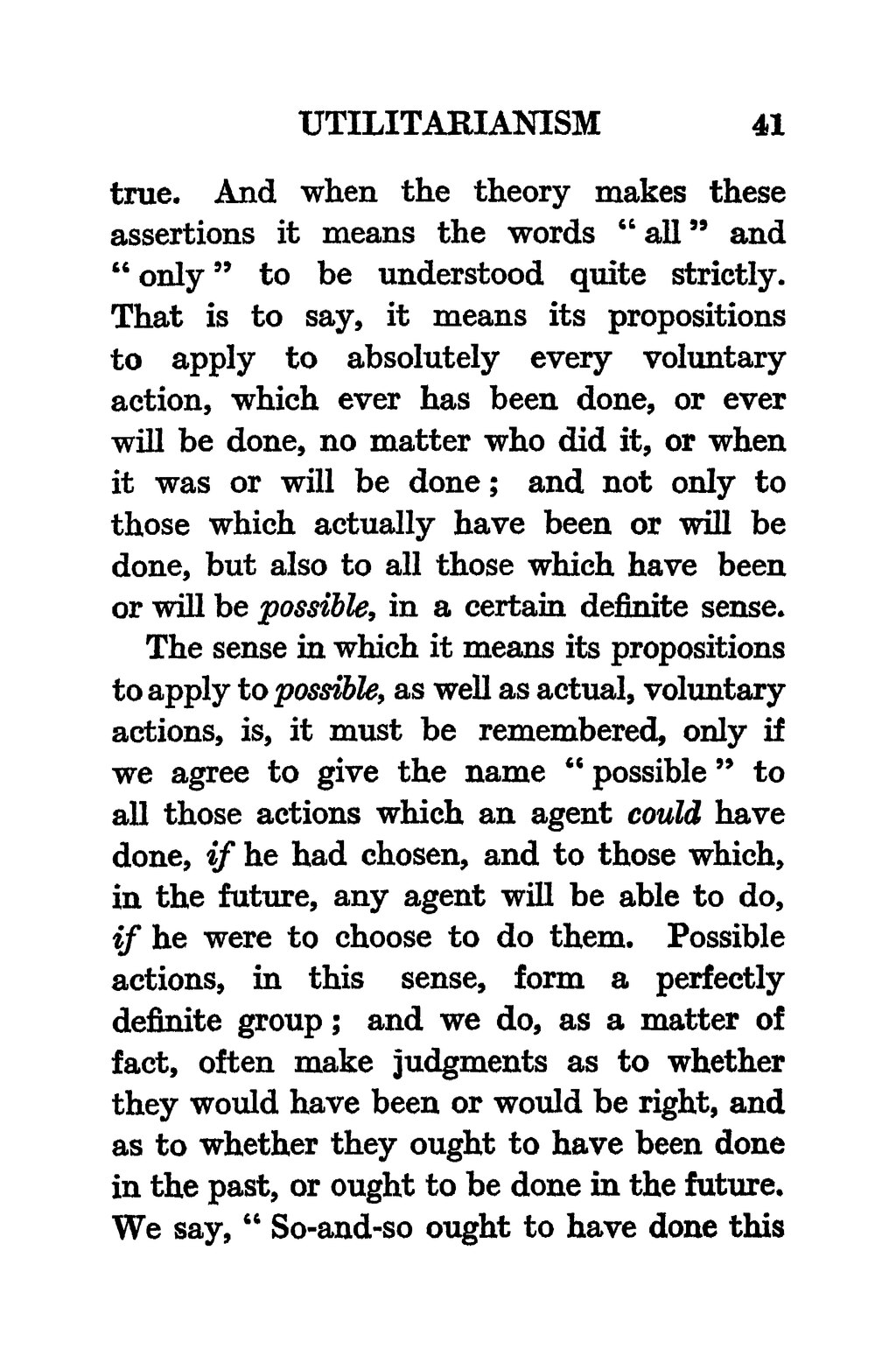true. And when the theory makes these assertions it means the words “all” and “only” to be understood quite strictly. That is to say, it means its propositions to apply to absolutely every voluntary action, which ever has been done, or ever will be done, no matter who did it, or when it was or will be done; and not only to those which actually have been or will be done, but also to all those which have been or will be possible, in a certain definite sense.
The sense in which it means its propositions to apply to possible, as well as actual, voluntary actions, is, it must be remembered, only if we agree to give the name “possible” to all those actions which an agent could have done, if he had chosen, and to those which, in the future, any agent will be able to do, if he were to choose to do them. Possible actions, in this sense, form a perfectly definite group; and we do, as a matter of fact, often make judgments as to whether they would have been or would be right, and as to whether they ought to have been done in the past, or ought to be done in the future. We say, “So-and-so ought to have done this
